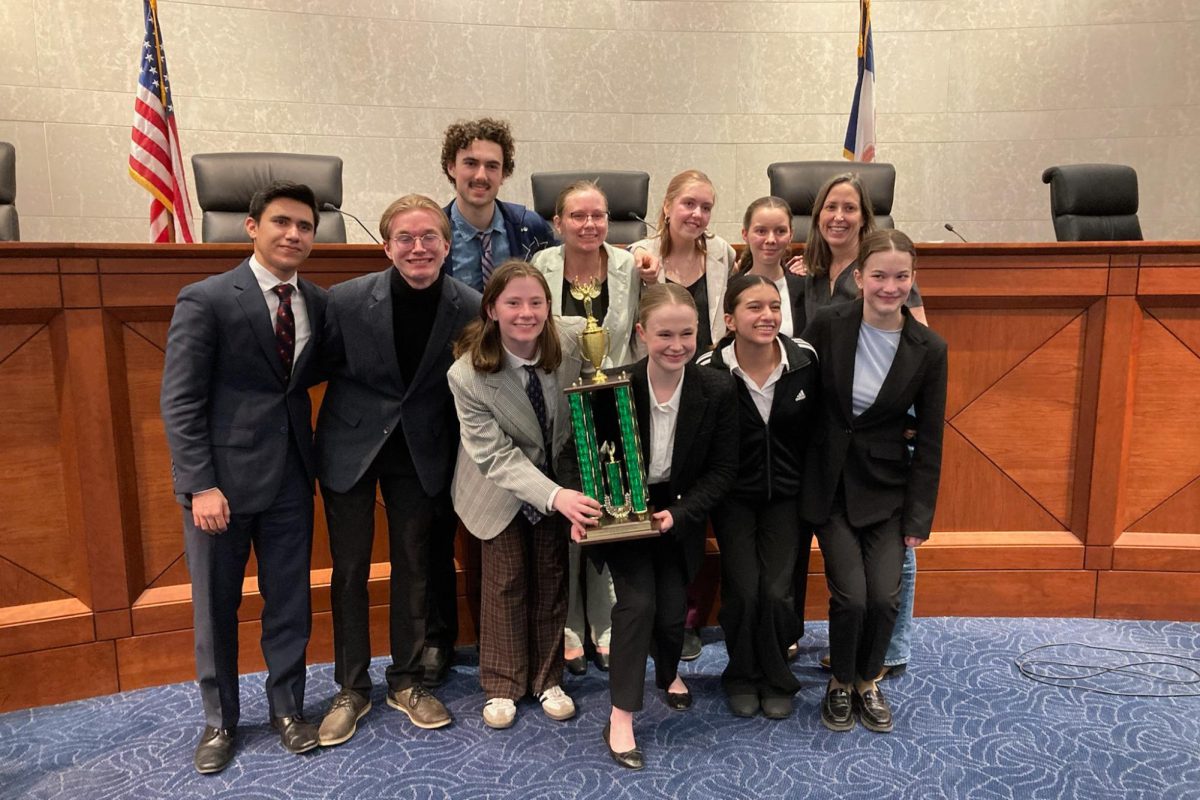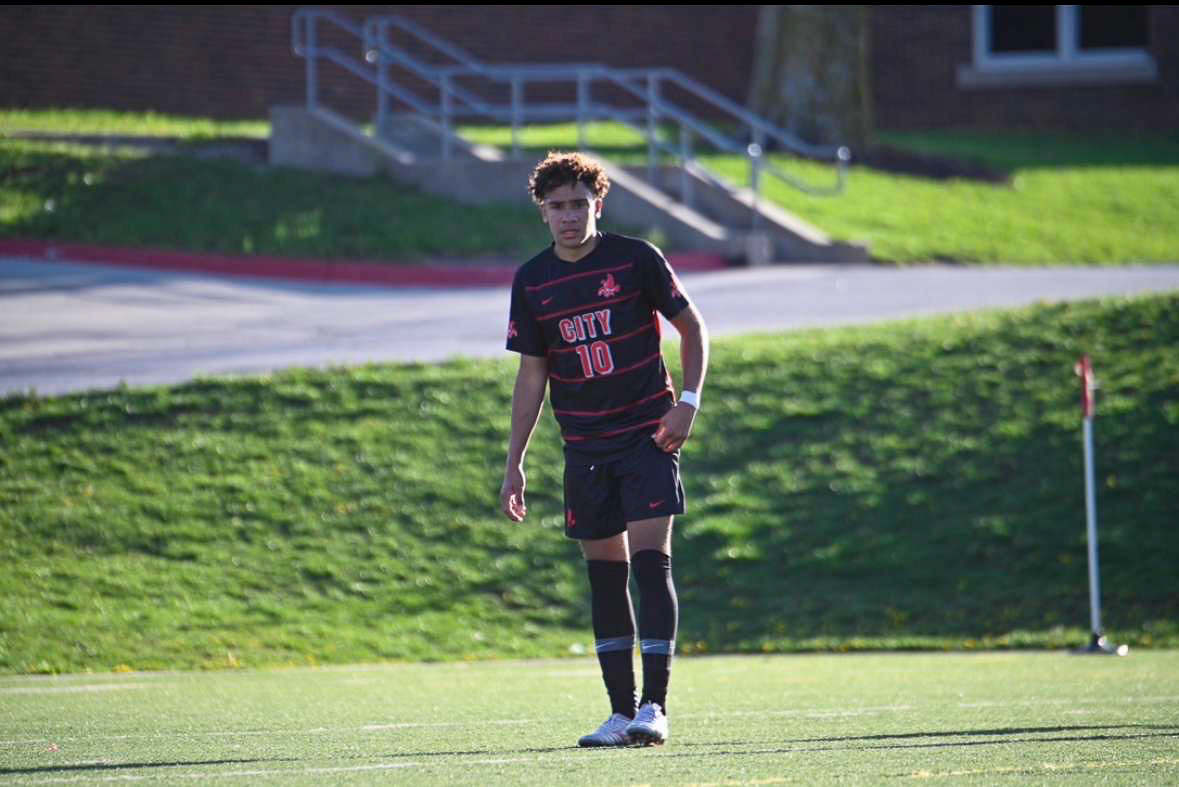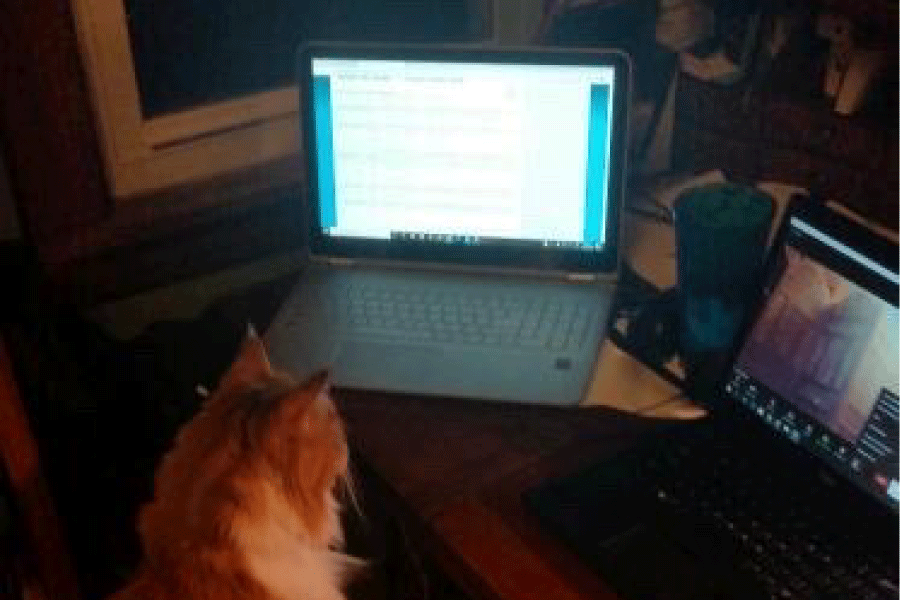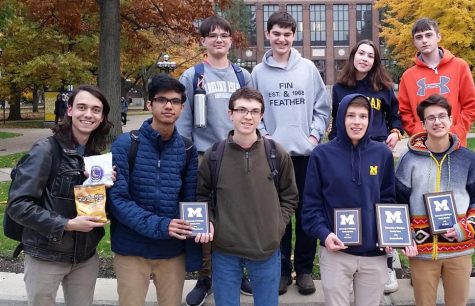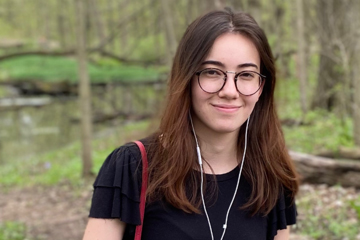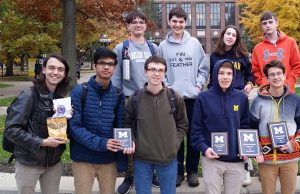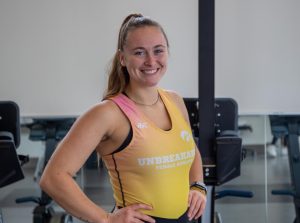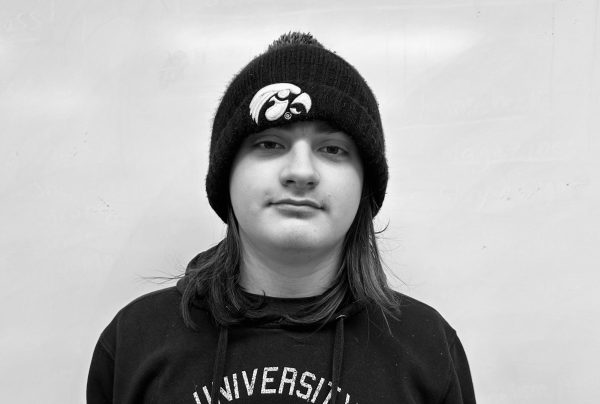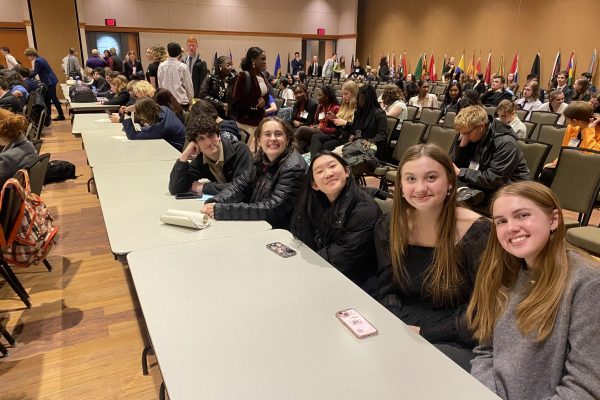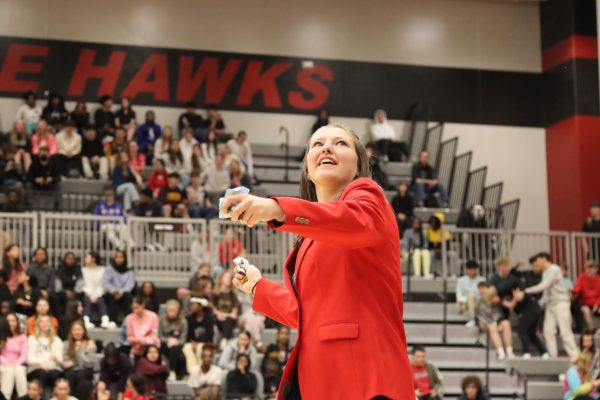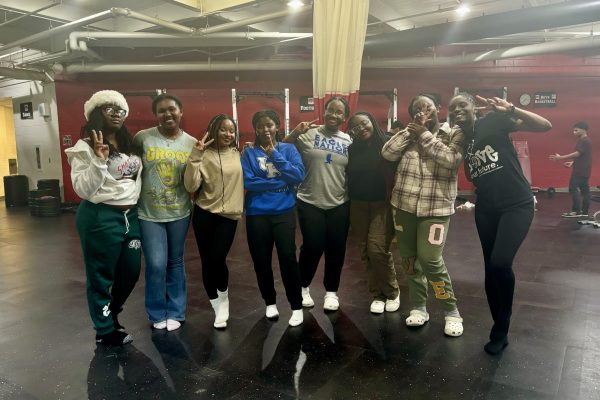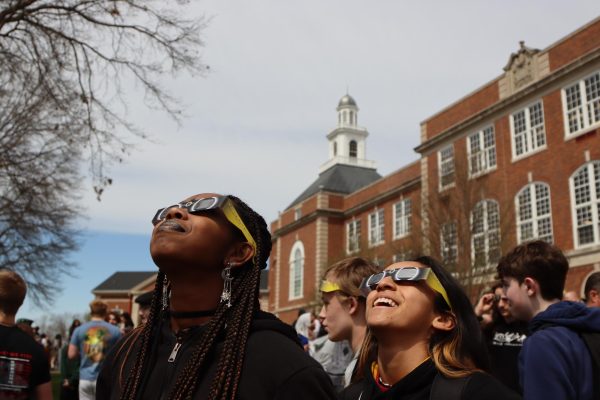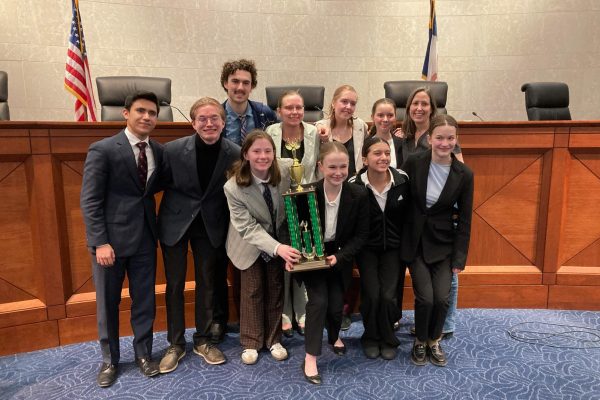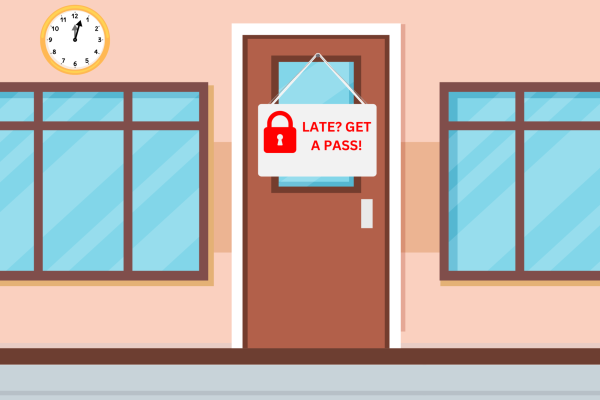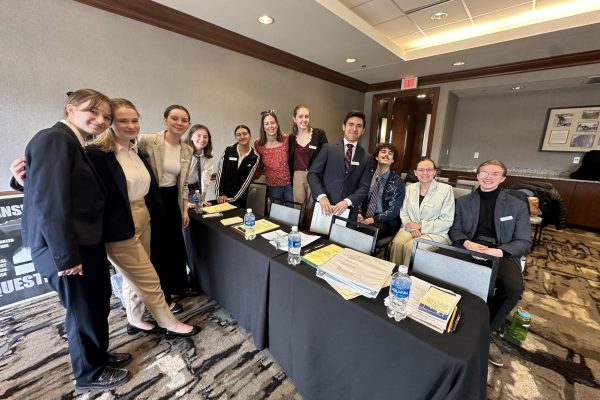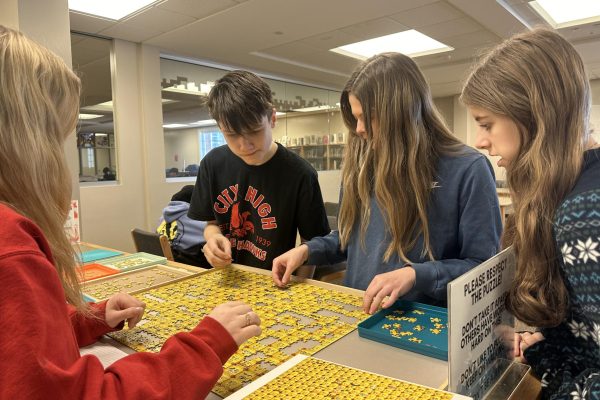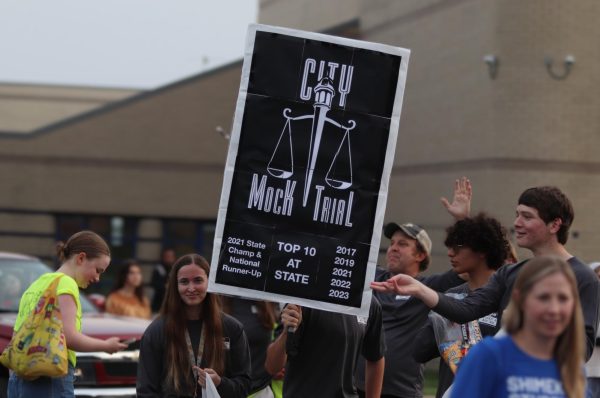First Novice Debate Tournament of the Season
John Cooper’s online debate setup.
November 5, 2020
On October 24, freshmen from City High had a chance to debate online for the first time. The tournament was hosted by West High and coordinated by John Cooper, and multiple varsity debaters helped with judging. There were teams from all over the country, including Texas, and none of them had ever been to a tournament before.
“The support I got was amazing. My team really pushed me,” Lulu Roarick ‘24 said.
Roarick does public forum which has shorter and fewer speeches than policy debate. For her, learning about interactions and respect with other teams was the most valuable thing she took away from the tournament.
“Just talking to the team you’re going against beforehand, I never thought I would have to do that, but it just creates this environment and it’s way more fun to debate someone if you have mutual respect for each other,” Roarick said.
City High teams had gone to one practice debate a few days prior to the tournament but found that being in the tournament setting was very beneficial.
“I went in not knowing what I was doing at all, but it got easier,” Marina Escandell ‘24 said.
Escandell and her debate partner, Reyna Roach ‘24, made it to the quarter-finals for policy debate. Escandell had done public forum in middle school and has found that there are some differences between the two types of debate.
“For policy debate, you really have to have a lot of mental stamina to make it through tournaments,” Escandell said.
The freshmen had done one practice debate before the tournament, and they have had practice every week.
“Just experiencing it and getting started instead of learning about all of the strategies and definitions. It’s so different from the actual practices,” Escandell said.
Both Escandell and Fiona Arnold ‘24, preferred being negative during their debates, even though they didn’t agree with what they were debating for. In most rounds, being negative meant negating, or being against, abolishing the death penalty.
“Even though that wasn’t my personal opinion, I just felt like I did better when I was negative,” Arnold said.
Both debaters went against the death penalty affirmative, it’s plan is abolishing the death penalty. This affirmative case was the most common since the types of arguments that novices can make are limited by what the National Speech and Debate Association allows.
“I actually liked being negative that tournament, which is weird because I’m against the death penalty. I preferred being negative because we got a lot more experience with it,” Escandell said.
The freshmen found that the tournament helped them experience the community that debate creates, even during a pandemic.





